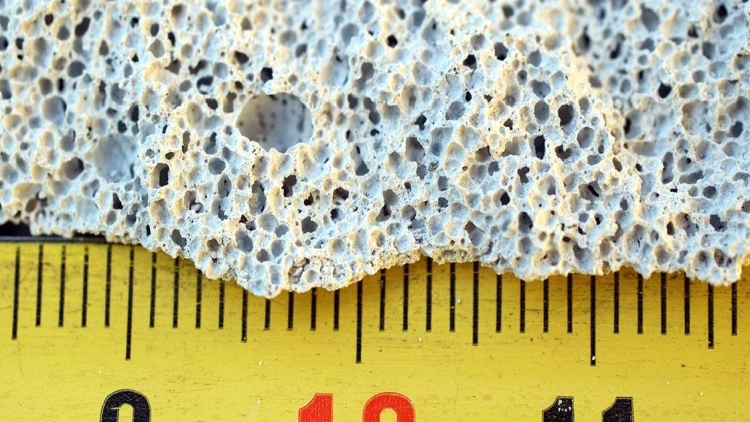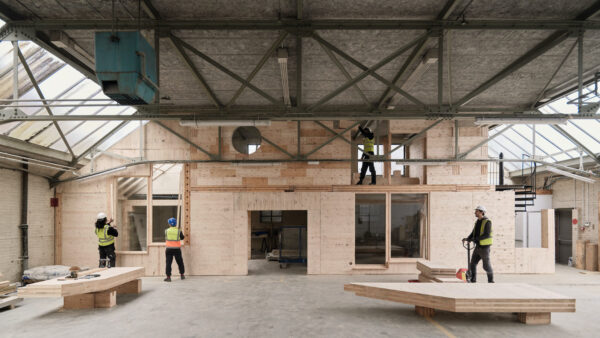
An NHS hospital is undertaking reinforcement works to reinforced autoclaved aerated concrete (RAAC) planks amid fears they have deteriorated and could collapse.
West Suffolk Hospital has installed 27 metal supports under planks within the building to make it safe. RAAC planks were used in the roofs, floors and walls of NHS buildings between the 1960s and 1980s and had an expected lifespan of around 30 years.
This form of precast concrete was really an aerated silica product, according to the Concrete Society, and offered little protection to the corrosion of embedded metal. The Concrete Society added that pre-1980 RAAC roof planks are now past their expected service life and there has already been some failures.
The concerns about West Suffolk Hospital arose following an investigation in March 2021 by MLM Structural Engineering. It made several recommendations, all of which have been accepted by the West Suffolk Foundation Trust. The Trust is carrying out a continuous survey and assessment programme on the hospital, examining the condition of the planks, identifying signs of stress, and carrying out immediate remedial work if an issue is found. Its estates team is carrying out ‘tap tests’ and using radar equipment to identify any issues.
Remedial measures include temporary props to reinforce the planks, bearing extensions to support the planks, and steel and timber beams. The work is being undertaken by Barnes Construction, running until spring 2023. The measures are expected to remain in place until a replacement hospital is constructed, one of 40 the government has pledged to build by 2030.
The trust is also piloting a new approach for managing wall planks using zinc anode technology to reduce potential erosion.
Emergency reinforcement work
The West Suffolk Hospital was one of a number named in a BBC report, which revealed how hospital trusts have been forced to undertake emergency reinforcement work or in some cases set weight limits on patients.
The Queen Elizabeth Hospital in King’s Lynn in Norfolk is reported to have installed more than 200 metal supports ahead of more comprehensive safety works, while the Hinchingbrooke Hospital in Cambridgeshire is closing two operating theatres to patients heavier than 120kg while structural surveys are carried out.
A spokesperson for West Suffolk NHS Foundation Trust said: “The safety of patients, staff, and visitors is our priority and we have always followed expert, independent advice when it comes to the management of our buildings to continue delivering a safe service for patients, who should continue to come forward for care as they usually would.
“There is a rolling programme of work to regularly check the planks, using the latest research and technology, and we have a number of well-practiced measures in place to identify and fix any issues immediately.”
Caroline Walker, chief executive of North West Anglia NHS Foundation Trust, which
runs Hinchingbrooke Hospital said: “Operations continue to take place for all our
patients, and we are following expert advice to manage our estate, checking and
surveying our buildings regularly and completing any maintenance as it’s needed.”
The trust has been given £13m this year to support this piece of estates work and patients over 120kg are still receiving their surgery with the trust.
Queen Elizabeth Hospital King’s Lynn NHS Trust has been contacted for comment.
In February this year, the government produced a guide for the identification and initial action on RAAC concrete, aimed at local authorities, academy trusts, governing bodies and school leaders.










